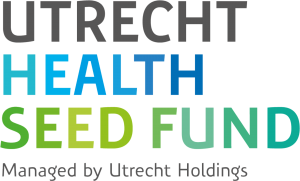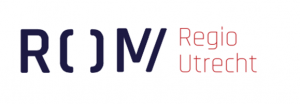CryoCloud secures a 500k pre-seed investment to accelerate structure- based drug design with their cloud-native cryo-EM data analysis platform
We are happy to welcome our new portfolio company Cryocloud! Together with Nina Capital and ROM Utrecht Region we have invested € 500K to help the company in their mission to accelerate protein structure determination.
We believe the company holds great promise to expand the use of CryoEM in drug development, with their cloud-based data analysis platform and are looking forward to working together! 🔬
For more information read the press release below:
• CryoCloud, a dutch biotech startup that developed a proprietary data analysis platform, closed a pre-seed round at 500k Euros
• Their cloud-based cryoEM data analysis platform enables the fast and scalable determination of 3D protein structures used for drug discovery
• CryoCloud will use the funding to expand the capabilities of its platform to better support scientists and streamline data analysis
CryoCloud, a biotech startup based in Utrecht, has recently secured a significant milestone in its journey to revolutionize the field of cryo-electron microscopy (cryo-EM), closing a €500k pre-seed funding round. Co-founded in 2021 by Robert Englmeier, Ilja Gubins, and Boy Persoon, CryoCloud has rapidly progressed from its conceptual stages, through various accelerator programs, to the launch of a pioneering cloud- based data analysis platform designed to enhance the accessibility and efficiency of cryo-EM in drug development and research.
This round was led by Nina Capital, with significant contributions from Utrecht Health Seed Fund and ROM Utrecht Region, underscoring the confidence in CryoCloud’s potential to disrupt the traditional cryo-EM landscape. Cryo-electron microscopy (cryo- EM) is a Nobel Prize winning technique for determining the 3D structure of proteins, and is increasingly used for structure-based drug design. Unlike predictive tools such as DeepMind’s AlphaFold, cryoEM allows scientists to determine protein structures experimentally and visualize relevant targets in their native or drug-bound state.
CryoCloud’s platform addresses the critical challenges faced by the scientific community, including the high costs, complexity, and inefficiencies associated with traditional cryo-EM compute infrastructure. By offering scalable cloud storage and powerful data analysis workflows through a user-friendly web app, CryoCloud is making advanced research tools more accessible to scientists worldwide, reducing the need for extensive infrastructure and specialized knowledge.
This recent investment underscores the confidence in CryoCloud’s potential to disrupt the status quo. Marta-Gaia Zanchi, Founder & Managing Partner at Nina Capital remarked, “CryoCloud’s innovative approach to leveraging cloud technology in cryo-EM is not just a major step for structural biology, but a testament to the transformative power of digital solutions in the life sciences sector.”
The funding will be instrumental in further developing CryoCloud’s platform, with a focus on adding advanced data analysis features and integrating AI to optimize cryoEM data processing. This aligns with the broader industry trend towards digitalization and automation in the life sciences, which promises to enhance research efficiency and reduce turnaround times for critical projects.
On the company’s progress, Irene van de Poll, Investment Manager at ROM Utrecht, notes “The team at CryoCloud have managed to build out their cloud-based platform in a short time and are already creating traction. Their technology can have an enormous impact on the speed of development in the life sciences sector.”
Reflecting on the importance of innovation in the field, Robert Englmeier, CEO of CryoCloud, stated, “The landscape and throughput of cryo-EM has evolved significantly in the last 6 years, yet the way data is analyzed remained the same – leading to bottlenecks and creating entrance barriers. Our mission is to make cryo-EM more accessible and to streamline the research process, which is now possible with our platform.”
“We are happy to invest in CryoCloud’s solutions, to make the complex and costly process of CryoEM analysis more accessible to the researcher” said Timo Koopmans, Investment Manager at the Utrecht Health Seed Fund. “Their platform has the potential to greatly expand the use of CryoEM in the life sciences.”
As CryoCloud prepares for its next phase of growth, it is poised to attract further investment and forge partnerships with leading companies and key opinion leaders in the field. The startup’s vision to simplify and accelerate cryo-EM data analysis resonates with the broader industry’s move towards more integrated, efficient, and automated research methodologies, promising a brighter future for scientific discoveries and innovation.
About CryoCloud:
CryoCloud was founded in 2021 by Robert Englmeier, Ilja Gubins and Boy Persoon with the goal to make cryo-EM more accessible and eliminate current inefficiencies of data analysis, storage and management. CryoCloud’s cloud-based data analysis platform is accessible via a web-app through a subscription, and is used globally by scientists from universities, biotechs & cryo-EM facilities. CryoCloud is based in Utrecht, the Netherlands, where Robert Englmeier and Ilja Gubins conducted their PhD studies in applied and computational cryoEM, respectively.
More info on CryoCloud at
www.cryocloud.io
About Nina Capital:
Nina Capital is a specialized venture capital firm investing exclusively at the intersection of healthcare and technology. With an international outlook from our home in Europe, we seed and support need-driven founders committed to improving healthcare with the help of technology.
More on us at www.nina.capital.
About Utrecht Health Seed Fund
Utrecht Health Seed Fund (UHSF) is an early-stage life sciences & health investment fund based out of Utrecht, The Netherlands, focused on scalable technologies in the field of Life Sciences (therapeutics and diagnostics), Medical Devices, Digital Health, and Animal Health in the earliest stages of development. UHSF is established by Utrecht Holdings with the assistance and support of the European Regional Development Fund (ERDF), UMC Utrecht, and the University of Utrecht.
For more information, please visit www.uhsf.nl.
About ROM Utrecht Region:
ROM Utrecht Region is a social impact investor that increases access to capital for innovative companies in the region. The ROM invests in the major transition sectors that are important for tomorrow’s economy: digital, health and sustainability. To realize the financing for these companies, the ROM works together with many partners within and outside the region. The ROM has two funds: the Healthy Urban Living Proof Of Concept (HUL POC) Fund and the Participation Fund. The HUL POC fund is made possible by co-financing from the Province of Utrecht and the European Regional Development Fund (ERDF). The investment in CryoCloud comes from the HUL POC fund.




